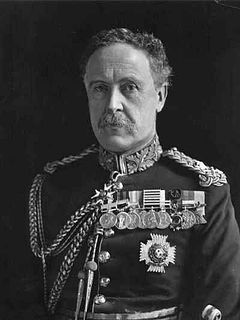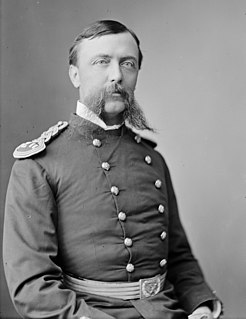Edward James Lawder | |
|---|---|
| Born | 1821 |
| Died | 2 March 1900 London |
| Allegiance | |
| Service/ | |
| Years of service | 1839– |
| Rank | General |
| Battles/wars | Indian Rebellion of 1857 |
General Edward James Lawder (1821 - 2 March 1900) was a British Army officer in British India.
Edward James Lawder | |
|---|---|
| Born | 1821 |
| Died | 2 March 1900 London |
| Allegiance | |
| Service/ | |
| Years of service | 1839– |
| Rank | General |
| Battles/wars | Indian Rebellion of 1857 |
General Edward James Lawder (1821 - 2 March 1900) was a British Army officer in British India.
Lawder was born in 1821, and entered the army in 1839. He served in India during the Indian Rebellion of 1857, as acting quartermaster-general with the Field Force established to relieve Saugor, taking part in the skirmish at Kubrai, the battle of Banda, the relief of Kirwee, and the storming of the heights of Punwarree. For his services he was mentioned in despatches and received the brevet rank of major. He transferred to the Madras Staff Corps, and received the brevet rank of colonel in 1871. He was promoted to major-general in 1881, and was placed on the unemployed supernumerary list in 1886. [1] He was subsequently promoted to lieutenant-general in 1887, and received the rank of general on 1 March 1891. [2]
General Lawder died at 36, Campden-hill-gardens, on 2 March 1900. [1]
He was married to Dora Jane, who died in Kensington on 27 May 1877. [3] They had children, including:
|

Field Marshal Sir Patrick Grant, was a senior Indian Army officer. He fought at the Battle of Maharajpore during the Gwalior Campaign, at the Battle of Mudki, the Battle of Ferozeshah and the Battle of Sobraon during the First Anglo-Sikh War and at the Battle of Chillianwala and the Battle of Gujrat during the Second Anglo-Sikh War. During the Indian Mutiny, as acting Commander-in-Chief, India, he directed the operations against the mutineers, sending forces under Henry Havelock and James Outram for the relief of Cawnpore and Lucknow. He later became Governor of Malta.

Lieutenant General Sir William Francis Butler was an Irish 19th-century British Army officer, writer, and adventurer.

Victor Albert George Child Villiers, 7th Earl of Jersey, was a British banker, Conservative politician and colonial administrator from the Villiers family. He served as Governor of New South Wales between 1891 and 1893.

Jacob Pleydell-Bouverie, 6th Earl of Radnor,, styled Viscount Folkestone from 1889 to 1900, was a British Conservative Party politician and a British Army officer.

John Peter Shindel Gobin was an American politician from Pennsylvania who served as an officer in the Union Army during the Civil War, as a member of the Pennsylvania State Senate for the 17th district from 1885 to 1898 and as the seventh Lieutenant Governor of Pennsylvania.

General The Honourable Sir Neville Gerald Lyttelton, was a British Army officer from the Lyttelton family who served against the Fenian Raids, and in the Anglo-Egyptian War, the Mahdist War and the Second Boer War. He was Chief of the General Staff at the time of the Haldane Reforms and then became Commander-in-Chief, Ireland.

General Sir Thomas Montagu Steele was a British army officer.

Joseph Cabell Breckinridge Sr. was a Union Army officer from Kentucky during the American Civil War. In later life, he became a brigadier general in the U.S. Regular Army and Inspector General of the Army as well as a major general of volunteers in the Spanish–American War.

Lieutenant-General Henry Hope Crealock was a British soldier, artist, and author.

General Sir Henry John Thoroton Hildyard was a British Army officer who saw active service in the Anglo-Egyptian War of 1882 and the Second Boer War. He was General Officer Commanding-in-Chief, South Africa, from 1905 to 1908.
Lieutenant General Sir Edward Hopton was a British Army officer who became Lieutenant Governor of Jersey.

Major-General Laurence George Drummond was a British Army general officer.
Lieutenant-General Sir Alfred Robert Martin was a British officer in the Indian Army.
Sir Henry Atwell Lake was a colonel of the Royal Engineers in England.

Major-General Alexander Murray Macgregor, born Alexander Murray, was a Scottish army officer in the British East India Company.